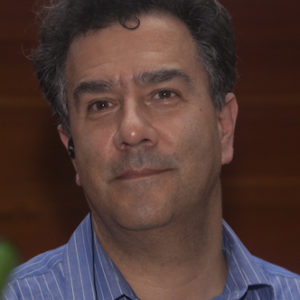
Arthur Getz
Facilitator/Consultant Urban PlanEat United Kingdom of Great Britain and Northern IrelandArthur Getz Escudero is a participatory action researcher in food systems transformation, innovation and policy analysis in collaboration with farmers, pastoralists and other civil society networks. A technical team member for the Milan Urban Food Policy Pact, he advises on the science-policy interface to FAO through the EU Framework 7 project, Linking Farmland Biodiversity to Ecosystem Services for Effective Eco-Functional Intensification (LIBERATION).
A founding member of the City Region Food Systems Alliance, he co-authored City Regions as Landscapes for People, Food and Nature (2014) and is a member of the Landscapes for People, Food and Nature Initiative (LPFN). He’s currently advising a global research project on agroecology and farm-landscape-food system transitions (VOVE). He provides facilitation and technical support to both IIED, and the Prince of Wales International Sustainability Unit on Rural-Urban Transformations and Food Systems. Formerly a food systems researcher at Cardiff University School of Geography and Planning, he has also been on research staff at World Resources Institute (Washington, DC), the Nature Conservancy (Honolulu, HI), and the East-West Center (Honolulu, HI).
While ‘going native’ during an extended apprenticeship on a traditional family farm in Japan from 1985 to 1991, he pioneered action research on ‘teikei’ consumer-producer partnerships (pre-figuring the advent of community supported agriculture in the West), co-produced a full length film on the subject, and subsequently has led cross-cultural exchanges and tours between farmer groups, scientists, and policy-makers in Asia, the Americas, and in Europe.
His current action research interests include:
• Spatial planning, territorial approaches and integrated landscape management
• Operationalizing resilience thinking in food systems and urban-rural linkages
• Ecosystem services and poverty alleviation; natural resource management, agroecology, livestock livelihoods and pastoralist knowledge systems
• Common pool resources, reflexive governance and adaptive institutions
• Sustainability science-policy interface and knowledge brokerage between scientists, policymakers and practitioners;
• Support systems for regional/global learning networks
